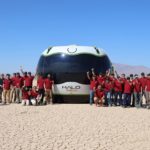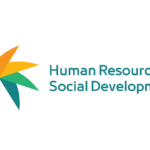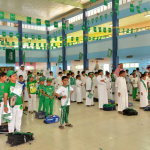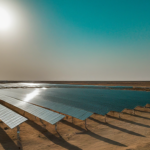
“Last year, venture investors plowed a record $3.4 billion into nuclear startups — more than in every year over the past decade combined, according to research firm PitchBook.”
Tech Billionaires Rally Around Nuclear as Energy Crisis Looms. [Bloomberg]

“Saudi Arabia and the U.A.E. have deepened cooperation with both Russia and China out of necessity, not preference. Should the Biden administration renew its commitment to regional defense by publicly affirming a strategic alliance, Riyadh and Abu Dhabi will revert to more-cooperative ties with Washington, including on oil prices, at the expense of Moscow and Beijing.”
–Firas Maksad, adjunct professor at George Washington University’s Elliott School for International Affairs and a senior fellow at the Middle East Institute, writing in the Wall Street Journal. [WSJ]

Amazon, “plans to increase its storage capacity in [Saudi Arabia] by 89 percent with eleven new buildings. By the end of the year, Amazon says its storage capacity will reach more than 867,000 square feet – the equivalent of more than ten football fields. The expansion will also increase the geographical area Amazon is able to deliver to by around 58 percent.”

“It is my pleasure to confirm that Golf Saudi has launched the first-ever Arabic education and training program, furthering our commitment to make golf accessible to all.”
A partnership was signed between Golf Saudi, Qaderoon Business Disability Network, and the National Training Center for Facilities and Hospitality Management, to broaden the concept of the golf industry in the Kingdom and educate Saudis offering them an array of roles in the sector, from golf course management to greenkeeping and event planning. By 2025, the program is expected to provide Saudis with 2,200 new jobs. [Arab News]

“If you didn’t live in Saudi through the ’80s and ’90s, you would not understand the cultural structure, the community, the way that people think here, and what we actually need. We do what fits our community. You can look everywhere around you here in Saudi and see the change happening faster than everywhere else. Hopefully when we get to 2030, a lot more will have changed.”
–Nouf Sufyani, the 30-year-old artist who goes by the stage name Cosmicat and was the Kingdom’s first women DJ-producer. [Fodors]

“The kingdom is on track sell carbon-free hydrogen from a $5 billion project in Neom by 2026, according to Peter Terium, the head of energy and water for the new region. Engineers have finished flattening the site in northwestern Saudi Arabia and U.S.-based Air Products & Chemicals Inc. will soon begin building the facility.”
Saudi Arabia to Start Building Green Hydrogen Plant in Neom [Bloomberg]

“I don’t know if it is really real. It happens at a moment when the geopolitical order is moving. The Saudis are trying to play with what they can. It is just a signal sent to the U.S. they want more consideration.”
-Guillaume Tresca, a senior emerging-market strategist at Generali in Paris, in comments to Bloomberg. A Wall Street Journal report said that Saudi Arabia is considering accepting yuan payments for oil sold to China. [Bloomberg]

“General Motors announced that they will invest $35bn in EV and autonomous vehicle (AV) product development spending until 2025 and that they will phase out petrol and diesel-driven cars by 2035. Volkswagen wants half of its vehicle sales to be electric by 2030 and nearly fully electric by 2040. Audi will only launch new fully electric models from 2026 and aims for all car sales to be electric in 2030.”

“By combining creative video content with Twitter’s Trend Takeover+, the campaign generated 68 million impressions, 22 million video views, and 350,000 clicks. Meanwhile, the #صيفنا_على_جوك hashtag drove 28 million impressions, and 8,800 people used it with 84% positive and neutral sentiment during the campaign.”
Twitter Marketing analyzes the Saudi social media campaign to promote its tourism sector. [Twitter Marketing]

“An IEA stock release is a rare event; this release is only the fourth in the IEA’s 48-year history. The first was at the end of 1991 just before the first Gulf War, the second in 2005 in response to the disruption from Hurricane Katrina, and the third in 2011 due to the conflict in Libya. The IEA does not have any oil stocks itself and instead coordinates the release of emergency stocks held by its member governments. The IEA Secretariat advises on the timing and scale of any such release, but the decision to draw from inventories needs the unanimous agreement of the IEA’s Governing Board.” On March 1, the International Energy Agency announced the release of 60 million barrels of emergency oil stocks held by its members in response to Russia’s invasion of Ukraine. [Arab Gulf States Institute in Washington]











